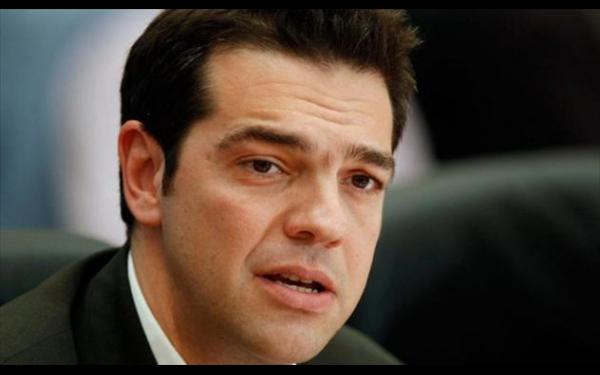Greek Prime Minister Alexis Tsipras will be walking a fine line in Moscow this week, aiming to demonstrate an independent streak to voters at home without irritating the European Union as he negotiates for urgently needed funding.
Greek officials and foreign-policy analysts in Athens say Mr. Tsipras isn΄t looking for money from Russian President Vladimir Putin in place of fresh bailout loans from eurozone governments and the International Monetary Fund. Russia΄s weak finances and limited interest in Greece mean it isn΄t a viable source of alternative funding anyway.
Instead, the visit Wednesday and Thursday is aimed at pleasing Greek voters with a show of defiance toward European creditors, they say.
Mr. Tsipras and other Greek politicians have been critical of EU sanctions against Russia over its agression in Ukraine, and EU officials are anxious about Greece splitting from its common position.
Greece and Russia have a long history of warm diplomatic ties, underpinned in part by their shared Orthodox Christian traditions. But Greece also has more pressing issues.
On Thursday, while Mr. Tsipras is still in Moscow, Greece must repay some EUR460 million ($505 million) to the IMF. That and other imminent debt repayments are placing great strain on Greece΄s treasury, forcing the country to delay public spending.
The Greek government faces debt default and a possible exit from the euro by this summer unless it can reach a deal with the eurozone and the IMF.
Talks on conditions for financing are making slow progress, with eurozone and IMF officials questioning Athens΄s seriousness about the economic restructuring that they say Greece needs.
Analysts say Mr. Tsipras΄s trip is unlikely to yield any tangible benefits but risks augmenting the mistrust between Athens and other EU capitals, including Berlin.
The benefits for Mr. Putin are more obvious, since the Kremlin is eager to show cracks in the West΄s front against Russia΄s policy in Ukraine. Days before the Greek visit, Russian officials were hailing it as a sign that EU leaders want tensions over Ukraine to end. Frants Klintsevich, a pro-Kremlin lawmaker, called the visit part of a “positive trend.”
Mr. Tsipras, the 40-year-old premier who took office in January after his leftist Syriza party won elections, attacked EU sanctions on Tuesday in an interview with Russian state news agency TASS.
“We don΄t agree with sanctions,” Mr. Tsipras said, in comments confirmed by his office. “I believe that this is a road to nowhere.”
He stopped short of saying he would veto the EU΄s periodic renewal of its Russia sanctions, which requires the consent of all EU governments.
Other EU leaders reacted calmly, in the apparent belief that Athens will bark but not bite.
German Chancellor Angela Merkel, speaking on Tuesday at a news conference in Berlin with French President François Hollande, played down Mr. Tsipras΄s Russia trip.
“We went to Moscow too and we are nevertheless members of the European Union and work for a common stance,” Ms. Merkel said, referring to her and the French president΄s negotiations in February that resulted in the latest cease-fire.
“There is no way Tsipras is going to risk being more isolated in Europe because of Russia,” said Constantinos Filis, director of the Institute of International Relations in Athens, a nonpartisan think tank.
In Moscow, too, there is understanding that Mr. Tsipras΄s criticism of the EU is largely limited to words. “You can΄t arrive at the European Council of Ministers and say your opinion, when in the neighboring office the question of your finances is being decided,” said Alexander Romanovich, a pro-presidential lawmaker who sits on parliament΄s foreign affairs committee.
Greek officials say Mr. Tsipras will discuss the possibility of exempting Greek agricultural products from Russia΄s counter-sanctions against the EU.
Athens has already asked Moscow to reduce the price of Russian natural gas sold to Greece. But no decisions on those two issues are expected to come out of the visit.
“Any big announcement would be very provocative in this particular time period,” said Mr. Filis. Any deals with Russia would anger Greece΄s fellow EU countries and make an agreement on bailout funding even harder, he said.
“Everybody gets that the solution to our problems is not going to come from Russia; any kind of help isn΄t a real substitute, but a supplementary dimension,” Mr. Filis said.
In a conciliatory sign toward Europe, Mr. Tsipras opted to visit Moscow this month while declining Russia΄s invitation to attend May 9 ceremonies in Moscow marking the 70th anniversary of the end of the World War II.
Other EU leaders, including Ms. Merkel, have decided to skip the military parade on Red Square amid the conflict over Ukraine.
“If the meeting took place on May 9, it would…send the wrong message,” said a senior Greek government official. “We are trying to upgrade Greek-Russian relations, but we always respect Greece΄s place in the European Union,” the official said.
(WSJ)





